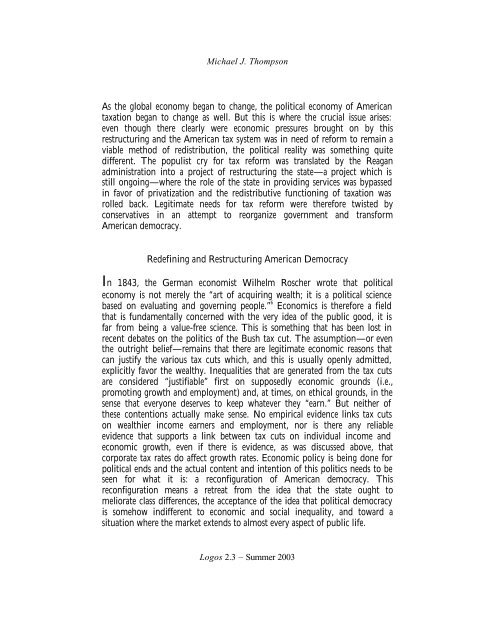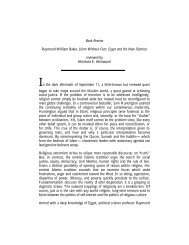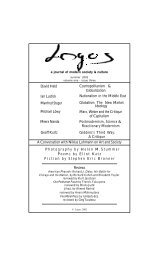Michael J. Thompson Stephen Eric Bronner Wadood Hamad - Logos
Michael J. Thompson Stephen Eric Bronner Wadood Hamad - Logos
Michael J. Thompson Stephen Eric Bronner Wadood Hamad - Logos
Create successful ePaper yourself
Turn your PDF publications into a flip-book with our unique Google optimized e-Paper software.
<strong>Michael</strong> J. <strong>Thompson</strong><br />
As the global economy began to change, the political economy of American<br />
taxation began to change as well. But this is where the crucial issue arises:<br />
even though there clearly were economic pressures brought on by this<br />
restructuring and the American tax system was in need of reform to remain a<br />
viable method of redistribution, the political reality was something quite<br />
different. The populist cry for tax reform was translated by the Reagan<br />
administration into a project of restructuring the state—a project which is<br />
still ongoing—where the role of the state in providing services was bypassed<br />
in favor of privatization and the redistributive functioning of taxation was<br />
rolled back. Legitimate needs for tax reform were therefore twisted by<br />
conservatives in an attempt to reorganize government and transform<br />
American democracy.<br />
Redefining and Restructuring American Democracy<br />
In 1843, the German economist Wilhelm Roscher wrote that political<br />
economy is not merely the “art of acquiring wealth; it is a political science<br />
based on evaluating and governing people.” 6 Economics is therefore a field<br />
that is fundamentally concerned with the very idea of the public good, it is<br />
far from being a value-free science. This is something that has been lost in<br />
recent debates on the politics of the Bush tax cut. The assumption—or even<br />
the outright belief—remains that there are legitimate economic reasons that<br />
can justify the various tax cuts which, and this is usually openly admitted,<br />
explicitly favor the wealthy. Inequalities that are generated from the tax cuts<br />
are considered “justifiable” first on supposedly economic grounds (i.e.,<br />
promoting growth and employment) and, at times, on ethical grounds, in the<br />
sense that everyone deserves to keep whatever they “earn.” But neither of<br />
these contentions actually make sense. No empirical evidence links tax cuts<br />
on wealthier income earners and employment, nor is there any reliable<br />
evidence that supports a link between tax cuts on individual income and<br />
economic growth, even if there is evidence, as was discussed above, that<br />
corporate tax rates do affect growth rates. Economic policy is being done for<br />
political ends and the actual content and intention of this politics needs to be<br />
seen for what it is: a reconfiguration of American democracy. This<br />
reconfiguration means a retreat from the idea that the state ought to<br />
meliorate class differences, the acceptance of the idea that political democracy<br />
is somehow indifferent to economic and social inequality, and toward a<br />
situation where the market extends to almost every aspect of public life.<br />
<strong>Logos</strong> 2.3 – Summer 2003




